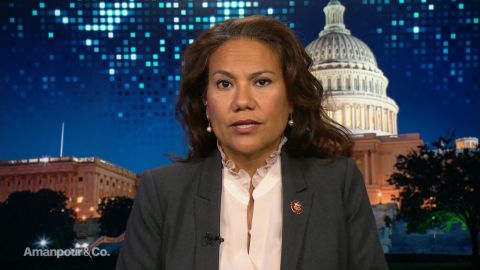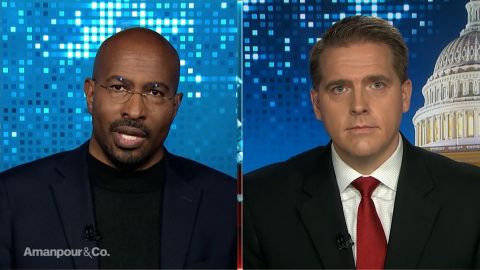Read Transcript EXPAND
CHRISTIANE AMANPOUR: How does this work, Scott, for your party? How can you, as the president says, get beyond revenge?
SCOTT JENNINGS: Well, the president, I think, is looking at a divided Congress right now that has so far shown no interest in working with him at all. It strikes me that what he’s worried about is that their only interest is in politics, ending this presidency as early as possible, making him as irrelevant as possible, that’s what he thinks is happening. And what he wants to set up is a messaging war here where they look intransigent and he looks like the person that’s willing to compromise. He wants to look like the person that wants to bring people together versus the obstructionists. Now, this could work for him at a political level if the Democrats refuse to work with him on every single issue. And so, I think it would behoove the Democrats to find a couple of places where they can show they can work with the other party to govern, but that’s what the president is trying to set up here is that he wants to work with folks and the Democrats don’t.
AMANPOUR: So, Van, I can see you busy shaking your head but I do want to play Chuck Schumer response, which goes to a lot of what Scott saying and perhaps what you’re going to say too. So, let’s do that and then, Van, we’ll get you to talk about it.
(BEGIN VIDEO CLIP)
CHUCK SCHUMER, U.S. SENATE DEMOCRATIC LEADER: You know, you can’t talk about committee and working together and give a speech that is so divisive, that just doesn’t fly. So, in the areas where he tried to reach out, you know, drug prices, transportation, infrastructure, there was no meat, there was no enthusiasm, all the enthusiasm was for the divisive parts like immigration, abortion and things like that.
(END VIDEO CLIP)
AMANPOUR: Van, so, this section describing the tone off, but admitting that there are areas where the policies could actually work together. Is that a basis full some bipartisan policy making going forward?
VAN JONES: I certainly hope. I see it a little bit differently from Scott and that, you know, Democrats did work with the president in a bipartisan way on criminal justice reform and you had groups from Freedom Works and America Conservative Union and Koch Industries working with, you know, cut50, FAM, ACLU and Leadership Conference on Civil Rights in some way. So, you have had bipartisanship on criminal justice, you had bipartisanship on opioids. No, I think you could have bipartisanship on drug prices or on infrastructure. So, I do think that there is a way forward. I do think — I agree with Scott, it would be a mistake for Democrats to just sit on their hands and refuse to cooperate on anything. But at the same time, I think that what he is doing is a kind of a — what we call a kind of phony populism where he says he’s for the working folks but then his tax bill helps the rich folks and he’s dividing working people based on where they were born and sometimes the color of their skin and that mishmash of kind of good and bad all together with good stuff marbled in the toxic stuff is something that just makes it hard for people to trust his intentions and want him to be successful as a president.
About This Episode EXPAND
Christiane Amanpour speaks with Van Jones & Scott Jennings about bipartisanship; and congresswoman Veronica Escobar about President Trump’s views on immigration. Hari Sreenivasan speaks with comedian Colin Quinn about comedy in an era of political correctness.
LEARN MORE


